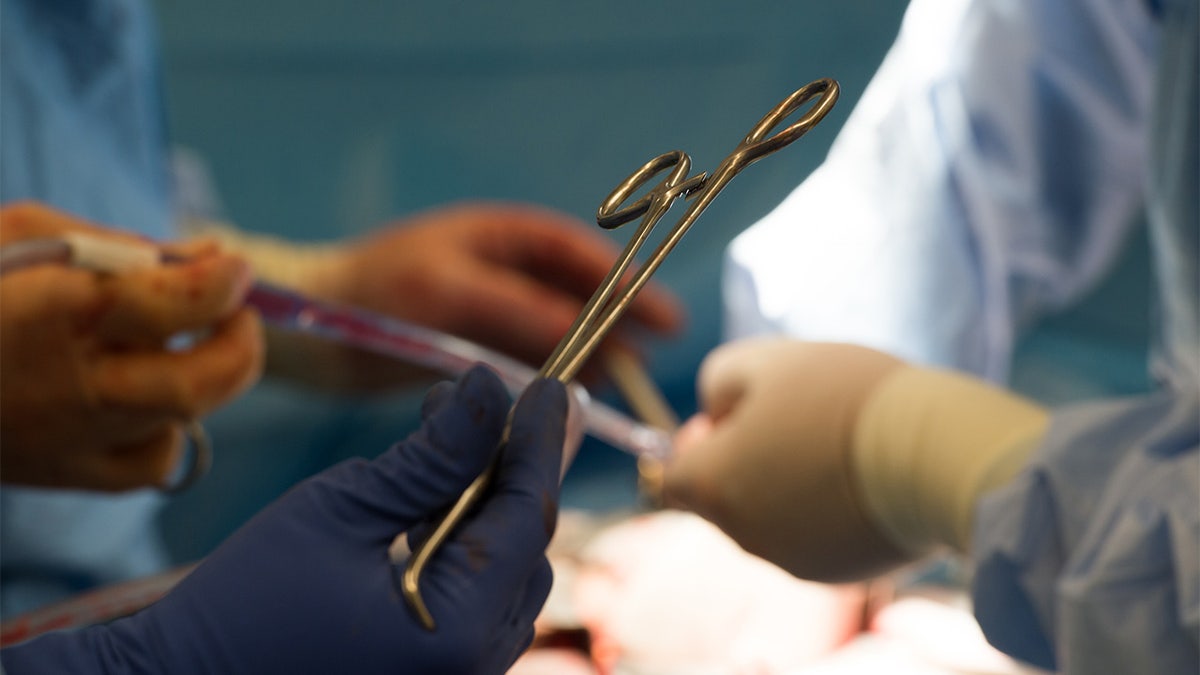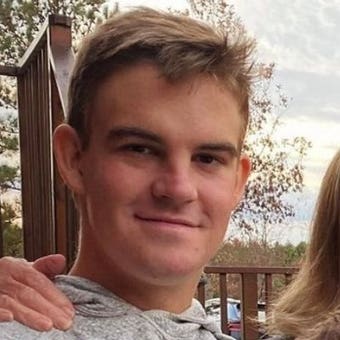Fox News Flash top headlines for April 23
Fox News Flash top headlines are here. Check out what's clicking on Foxnews.com.
Twenty Americans die every single day while waiting on an organ transplant list, but that could change as a New Jersey man is now suing to overturn a 1984 bill that makes it illegal to buy and sell organs.
John Bellocchio, a career academic who now runs a service dog business throughout Appalachia, first got interested in potentially selling a kidney or another organ after running into financial difficulty, but says he was shocked to learn it is illegal.
The National Organ Transplant Act of 1984 makes it "unlawful for any person to knowingly acquire, receive, or otherwise transfer any human organ for valuable consideration for use in human transplantation."
People can still donate a kidney or a liver, but it is illegal to sell them, which has created a massive shortage in the supply of healthy organs for transplant. There are 114,000 people currently on the waiting list for a lifesaving organ, according to the American Transplant Foundation.
ORGAN TRANSPLANTS DIVE AMID CORONAVIRUS CRISIS, START TO INCH BACK
Bellocchio filed a lawsuit in Manhattan federal court against U.S. Attorney General Merrick Garland last week, arguing that the ban on the organ trade violates his freedom to contract and interferes with his ability to do with his own property, in this case, his body, as he sees fit.

John Bellocchio filed a lawsuit in Manhattan federal court against U.S. Attorney General Merrick Garland to overturn the 1984 banning the legal trade of organs. (John Bellocchio)
"'My body, my choice,' shouldn't just be for abortion," Matthew Haicken, Bellocchio's lawyer, told Fox News. "It's your God-given organs. It's yours."
Bellocchio said he thinks the fight to declare the 1984 ban on the organ trade unconstitutional cuts across all political lines.
"This is by and large a very bipartisan, if not apolitical, effort," Bellocchio said. "And it should be because this affects the health and well-being and livelihood of millions in America and throughout the world."
The New York Post first reported news of Bellocchio's lawsuit.
Many who are opposed to a legal market for organs argue that it would lead to the exploitation of poor people, but Ilya Somin, a law professor at George Mason University and adjunct scholar at the Cato Institute, said this concern is misguided.
"Donating a kidney is actually less risky than all sorts of other things that we allow people to do all the time, including poor people, like being a lumberjack. That's much more risky in terms of risk of death and serious injury, but no one says, 'Poor people shouldn't be allowed to be lumberjacks,'" Somin told Fox News.

Surgical instruments are used during a kidney transplant surgery at MedStar Georgetown University Hospital in Washington D.C., Tuesday, June 28, 2016. (AP Photo/Molly Riley)
Haicken echoed Somin's sentiment, arguing that a legal organ market could actually provide much-needed opportunities and financial relief to people who are down on their luck.
"Who fights our wars? Who does the most dangerous jobs in America? Should we say that poor people can't join the Army? It's unfortunate that that's how it works, but this would actually give people an economic opportunity," Haicken said.
NEW MEXICO CORONAVIRUS PATIENT UNDERGOES LIFE-SAVING DOUBLE LUNG TRANSPLANT
There are risks involved in both kidney and liver transplants -- the two most common living organ procedures -- but they are low.
The Mayo Clinic writes that 50 years of studies show that "the life expectancy for those who have donated a kidney is the same as for similarly matched people who haven't," but there are some possible long-term complications, such as high blood pressure and reduced kidney function.
Even though there may be some risks, Somin argued that the benefits of a legal market for organs far outweigh the costs.
"Whatever objection you have to this, whether it's a left-wing objection or right-wing objection or something else, you have to ask: not only is there some sort of a problem, but is it a great enough problem that we should be willing to consign thousands of people to death every year, and many more thousands to kidney dialysis?" Somin said.
CLICK HERE TO GET THE FOX NEWS APP
"It's not my contention that organ markets would be completely perfect and there would be no problems whatsoever," he continued. "I think the contention is simply that the enormous benefits outweigh any possible cost that can be conceived of."











































